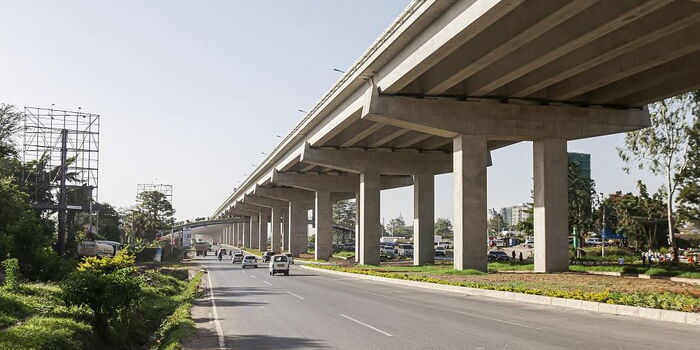The Kenya National Highway Authority (KENHA) has introduced a new technology it adopted for the construction of Mombasa Road in Nairobi that aims to boost the road’s lifespan.
According to KENHA, the new technology is known as the Hand-Packed Stone (HPS) which involves the creation of a durable sub-base below the bitumen surface.
”KeNHA has adopted Hand Packed Stone (HPS) technology in the construction of Mombasa Road to create a durable sub-base and extend the pavement’s lifespan. This labour-intensive method enhances the road’s structural integrity, ensuring taxpayers get value for money,” KENHA stated.
Hand-packed stone (HPS) is a method of road construction and ground reinforcement that predates ancient times and involves manually laying stones in a tightly packed arrangement.
A photo collage of the Hand Packed Stone (HPS) employed by Kenya National Highway Authority on the construction of Mombasa Road in Nairobi.
KENHA
A ground surface is first dug using excavators, after which the stones are placed manually from the biggest to the smallest.
A road surfacing roller is then run over to make the layers more compact after which loose gravel is added on top.
Later, the gravel is clean and a layer of tar is spread over and allowed to dry before the process of adding bitumen and asphalt begins.
This technique is often used in infrastructure projects, especially in rural and low-traffic areas, due to its cost-effectiveness and simplicity.
The technique will extend the road’s lifespan as it will address challenges like drainage by the introduction of a rockfill base to stabilise the wet ground.
Mombasa Road is characterised by poorly drained black cotton soil, meaning that other technologies of road construction that do not address stagnant water are likely to be a waste of taxpayers’ money.
KENHA revealed that the contractor working on the road will further lay a dense layer of bitumen to add to the road’s durability.
”To address drainage challenges caused by high water percolation, the contractor has also introduced a rockfill base to stabilise the wet ground,” KENHA stated.
”The road’s surface will feature a layer of Dense Bitumen Macadam and Asphalt Concrete for added strength and durability,” it added.
The HPS technology is majorly used in the construction of roads within areas that have loose soils and as base layers for paved roads and pathways.
Mombasa Road is one of the major highways that the government is currently struggling with to address the traffic jam issues within the Nairobi metropolitan, coupled with budget constraints to address damages.
An image of Mombasa Road under construction on Sunday, December 15, 2024. PHOTO/ Rene Otinga
























